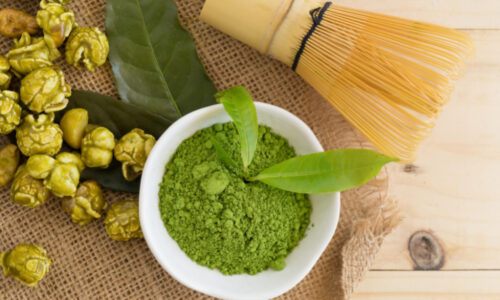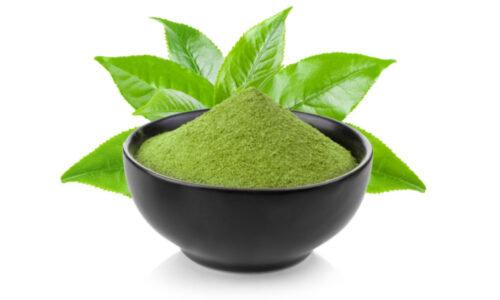The all-natural L-Theanine is a powerful amino acid gaining popularity for its amazing benefits. L-Theanine is an amino acid from the green tea plant and has been used in Asian cultures for centuries to reduce stress.
It’s not a wonder drug; it will not take away all your worries or even make you happy when stressed out. But it can help relieve some of the symptoms of anxiety so that you can function better during stressful times.
And unlike anti-depressants with known side effects, L-theanine is natural, has almost no side effects and can be taken long-term. So if you want something that will give you more energy without messing with other aspects of your life, then L-theanine might be right up your alley. Read on to find out why it is an all-natural amazing amino acid and the l theanine mechanism of action.
What are Amino Acids?
Amino acids are the building blocks of protein, a macronutrient that supplies our bodies with energy. They can be found in meat and vegetables but are most abundant in animal products such as eggs and milk. Amino acids play an essential role in many critical bodily functions, including:
- Maintaining healthy skin cells
- Repairing damaged tissue
- Building muscle mass
- Stabilise blood sugar levels by converting carbohydrates to glucose for the body’s tissues.
One particular amino acid is called L-theanine, which is interesting because it does not occur naturally in any food source other than tea leaves (Camellia sinensis).
What is L-theanine?
L-theanine is an amino acid that comes from the tea plant Camellia sinensis. Several other plants also contain this compound, but the naturally occurring quantities aren’t enough to be consumed.
The exciting thing about l-theanine is that it has no nutritional value. It cannot build protein, nor does it provide energy. So why is it so popular?
The answer is that l-theanine has some unique properties that make it a valuable supplement for people looking to improve their health. It has been shown to reduce stress, improve mood, lower blood pressure, and increase brain activity.
So does this mean that l-theanine is the miracle drug for everything? No, but it has been scientifically proven to have some fantastic properties worth looking into by anyone who wants to improve their health without taking numerous supplements or drugs.
Is L-theanine an essential amino acid?
L-Theanine is an interesting amino acid because it does not occur naturally in any food source other than tea leaves. It has been used in Asian cultures for centuries to reduce stress.
While it is not an essential amino acid, it does have some valuable properties that make it worth looking into.
L Theanine Mechanism of Action
L-theanine’s mechanism of action is not fully understood, but scientists believe it works on certain neurotransmitters in the brain that have a calming effect. These neurotransmitters include GABA, dopamine and serotonin. It also affects the cortisol and melatonin levels in the body, related to stress and sleep.
To understand what l theanine do in the body, you first need to know how your brain works.
Does l-theanine increase GABA?
GABA is a neurotransmitter that is responsible for feelings of relaxation. The body can quickly produce it from another amino acid called glutamic acid, found in many protein-rich foods such as meat and dairy.
GABA and glutamate (the other amino acid that can produce GABA) are responsible for over 60% brain activity. They also appear to be essential in memory, learning and brain development. Thus, it is unsurprising that people who lack these neurotransmitters tend to suffer from anxiety and depression.
However, L-theanine works on GABA in a very different way because it prevents the breakdown of this neurotransmitter. As a result, it allows GABA to remain active for more extended periods.
GABA is essential for practical brain function because it has a calming effect on the brain cells. When there are high levels of stress, this can lead to severe damage to brain cells that affect memory and learning functions.
By increasing GABA levels in the brain, L-theanine can help reduce stress-related mental fatigue. It can also improve cognitive function and allow you to concentrate better.
Does l-theanine increase dopamine?
Dopamine is another neurotransmitter that is important for mood, motivation and pleasure. It is the primary neurotransmitter related to happiness and is often called “the pleasure molecule”. It is also involved in the brain’s reward system, often associated with addiction.
As you age, your dopamine levels tend to decrease naturally. This, in combination with stress, can make you feel less motivated and happy.
Studies show that L-theanine might help increase dopamine function, which has an antidepressant effect. It can also help improve cognitive function, memory, and mood, increase feelings of pleasure and help to reduce stress.
Does l-theanine increase serotonin?
Serotonin is a neurotransmitter related to mood, stress, sleep and appetite. It is often called the “happy molecule” because it is responsible for feelings of wellbeing and happiness.
Serotonin and dopamine work together, and each one affects the other. Low serotonin levels can lead to low levels of dopamine, which is associated with depression. Dopamine deficiency has also been shown to cause sleep problems because it reduces relaxation and restfulness after sleeping.
By increasing serotonin levels in the brain, L-theanine can help reduce stress, promote a positive mood and help you to sleep better at night. It can also have a positive effect on your appetite control.
Does l-theanine lower cortisol?
Cortisol is a hormone that is released in response to stress. The adrenal glands produce it, which is responsible for the “fight or flight” response and helps increase energy levels to deal with stressful situations.
However, high levels of cortisol can harm your health. It can cause high blood pressure, weight gain, anxiety, depression and memory problems.
L-theanine has been shown to help lower cortisol levels in the body, which can help reduce the harmful effects of stress on your mind and body. It can also improve your mood and help to reduce anxiety, stress and irritability. It can also help to improve cognitive function and memory.
What is l-theanine in Melatonin?
Melatonin is a hormone responsible for regulating the body’s sleep-wake cycle. It is produced by the pineal gland in the brain and helps control the timing and duration of sleep.
L-theanine has been shown to increase melatonin levels in the brain to improve sleep quality and duration. It can also help reduce the adverse effects of stress on the body.
Does l-theanine have any side effects?
L-theanine is a safe supplement with little or no side effects when taken at appropriate doses. Common side effects include Headaches, sleepiness and nausea among people who take high doses of l-theanine.
People who experience these symptoms should lower their dosage or stop taking the supplement altogether. Other rare side effects may include: drowsiness, stomach upset and dizziness. People do not need to worry about any severe adverse effects from l-theanine.
L-theanine is a safe and well-tolerated supplement that positively affects mood, stress, and sleep. It is best to start with a low dose and increase gradually as needed. Speak to your health care provider before taking l-theanine if you are pregnant, breastfeeding or taking medication. L-theanine is not recommended for people who are under the age of 18.
Wrap up
We must find ways to relieve our stress to function better during these stressful times. You can do this by incorporating L-Theanine into your daily routine. It is a powerful amino acid gaining popularity for its excellent benefits.
It’s not a wonder drug; it will not take away all your worries or make you happy when stressed out. But it can help relieve some of the anxiety symptoms so that you can function better during stressful times. The best part about it? Unlike anti-depressants with known side effects, L-theanine is natural and has no side effects. It’s also not addictive like caffeine, making it perfect if you’re prone to mood swings due to stimulant intake.
Green tea is one of the most acceptable sources of L-theanine, a chemical that may be found in many teas for a reasonable price. If this sounds like something that could benefit your health, try adding more green tea to your diet today to combat your worries.
FAQ
What are l theanine supplements?
L-theanine is an amino acid that can be found in both plant and animal proteins. It has been shown to reduce stress and anxiety, promote relaxation, improve sleep quality, and boost cognitive performance. People take l-theanine supplements to achieve these benefits. Some familiar sources of l-theanine include green tea and black tea. It is also available as a supplement in the form of capsules or tablets.
Are there any side effects from l theanine?
L-theanine is considered safe for most people. It is well tolerated and has few side effects. The most common side effect is an upset stomach. Other potential side effects include headaches, dizziness, nausea and irritability.
Is l theanine effective?
L-theanine has effectively reduced stress and anxiety, promoted relaxation, improved sleep quality, and boosted cognitive performance. These benefits are supported by research.



